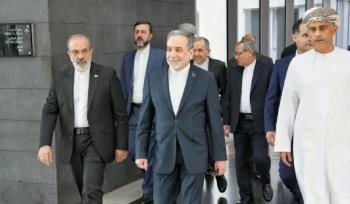Alwaght- Four Palestinian prisoners launched an open-ended hunger strike, protesting against Israeli regime’s administrative detention.
In a statement released on Monday, the Palestinian Prisoners Society (PPS) said the inmates are from al-Khalil governorate in the south of the occupied West Bank. They are imprisoned at Ofer military camp and prison, near Ramallah.
The PPS said Anas Ibrahim Shadid, 26, Mahmoud Abdel Halim Talahma, 32, Abdullah Mohammad Abido, 36, and Mohammad Ahmad Dandis, 25, began refusing food nine days ago in protest against their detention without charge or trial.
Shadid had gone on hunger strike twice after previous arrests, including a 90-day strike in 2016.
Talahma, detained since March 22, is a lawyer and former prisoner who spent two and a half years in Israeli prisons.
Abido is a former prisoner who spent a total of five and a half years behind Israeli bars.
And Dandis was detained on March 23. He has to be imprisoned for six months under administrative detention.
Israel is currently holding over 1080 Palestinian prisoners, including 17 minors and three women, without charge or trial, according to the PPS.
The latest Palestinian hunger-striking detainee, Khader Adnan, 44, died in prison on May 2, after almost three months of hunger strike.
Israel’s administrative detention is a sort of imprisonment without trial or charge. The regime keeps the detainees for up to six months – a period which can be extended indefinitely.
Human rights organizations say Israel violates all the rights and freedoms granted to prisoners by the Geneva Convention.
The Palestinian prisoners are kept under deplorable conditions lacking proper hygienic standards. They have also been subjected to systematic torture, harassment, and repression.
The United Nations and the International Committee of the Red Cross (ICRC), as well as many human rights groups, have frequently expressed serious concern about the health condition of the prisoners on hunger strike.
Rights groups describe Israel’s use of administrative detention as a “bankrupt tactic” and have long called on Israel to end its use.



























